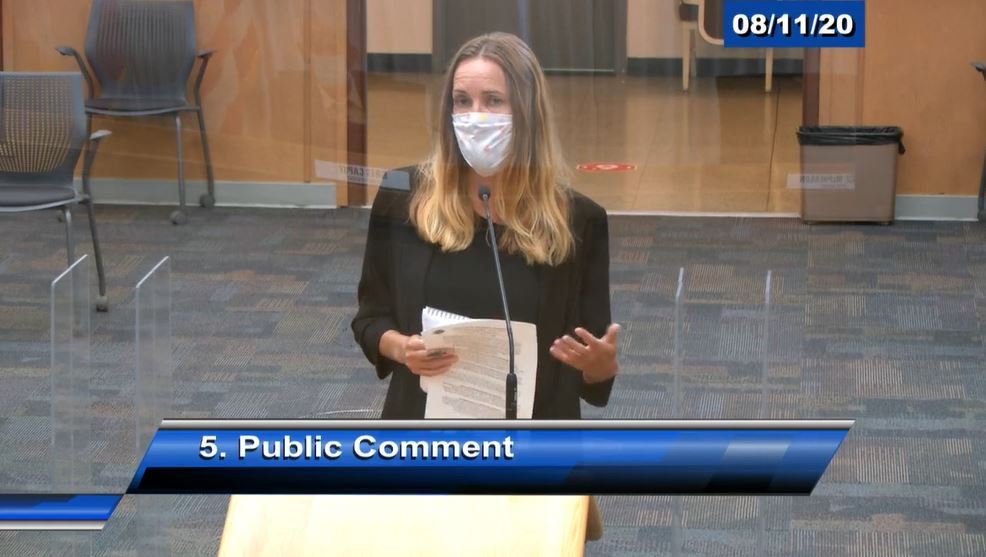Editor’s note: This resource page is part of Santa Cruz Local’s Guide to Local Government. Read an introduction and view all the pages.

Residents discuss a range of topics at Santa Cruz County Supervisors meetings. (County of Santa Cruz screenshot)
City council agendas typically have several parts and appropriate times for residents to speak.
- Roll Call: Attendance of elected leaders
- Proclamations: Business leaders, volunteers, longtime city or county employees and others are recognized for their services or achievements with short speeches by elected leaders.
- Oral Communications or Public Comment: Residents can speak for one to three minutes about items not on the agenda.
- Consent agenda: These are routine items that the council is expected to approve unanimously and without discussion unless a council member asks to pull an item off of the consent agenda for discussion. Some “consent” items could include the city’s acceptance of state or federal grants. Or it could authorize an council member’s appointee to a city commission. Or it could approve a construction contract. County supervisors often have a dozen or more items on the consent agenda each meeting.
- Regular agenda: This is the heart of the agenda, which includes consideration of new laws or “ordinances.” Before votes are taken, residents can speak publicly about their views on proposals.
- Information items: These items typically include presentations from city or county staff on, say, a repair project at the Capitola Wharf. Or it could be an update on the Watsonville city budget.
- Closed session: Sometimes before or after meetings, city councils or the county board of supervisors meet privately to discuss current or pending lawsuits against the city or county.
Learn about how local government works in Santa Cruz County and how to make your voice heard.
